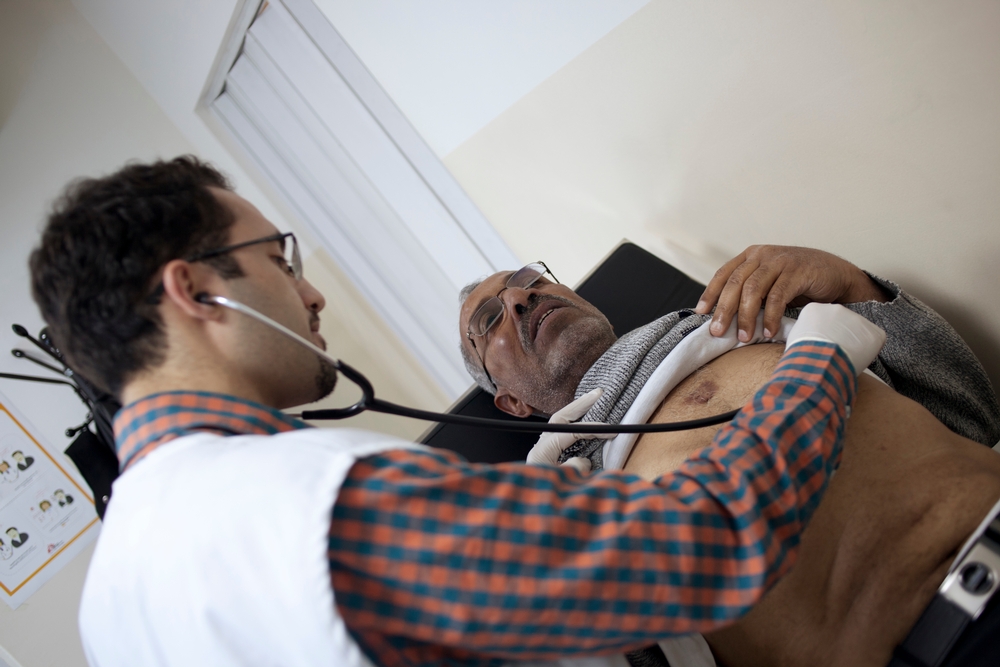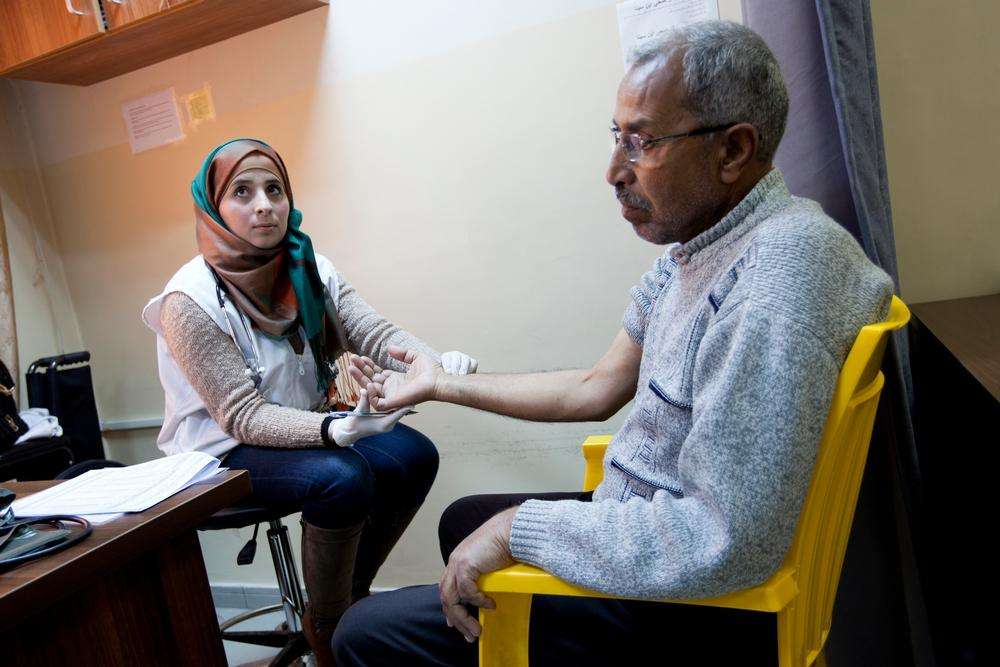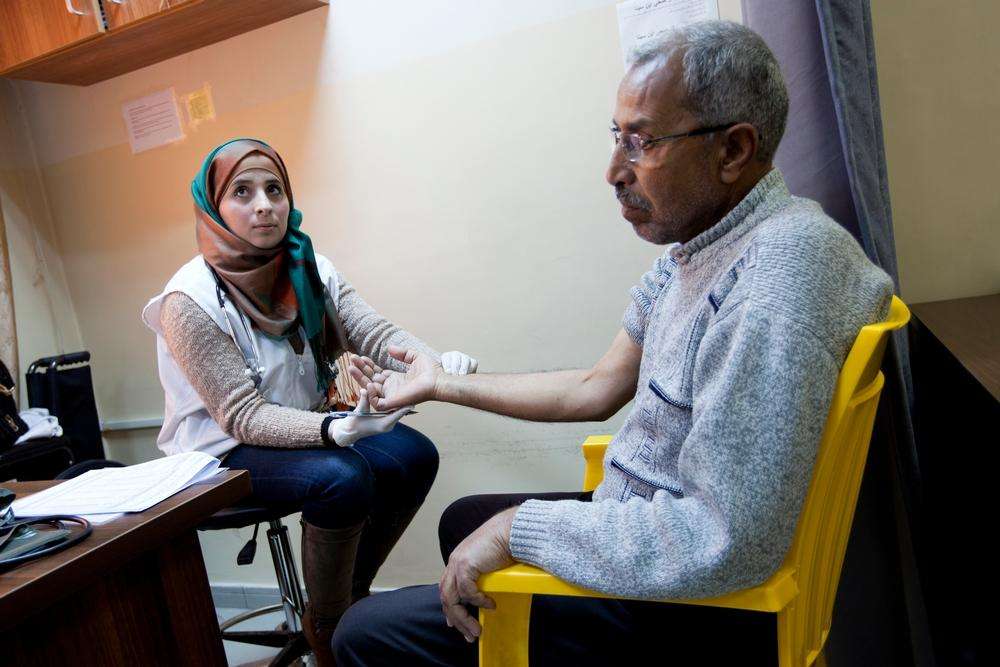Doctors Without Borders/Médecins Sans Frontières (MSF) opened a non-communicable diseases (NCD) project in Jordan's Irbid governorate on December 15, 2014. Jon Gunnarsson Ruthman, a nurse at the project, explains how MSF is helping both Syrian refugees living in the host community in Irbid and disadvantaged Jordanian nationals suffering from chronic diseases.
Tears are running down her cheeks. She has difficulty breathing and we suspect an asthma attack. She sits down on a chair and her breathing calms down after being seen and listened to.
It appears that she could not afford her blood pressure medications for the past month, which is one of the reasons her blood pressure is now rising. She starts to open up; today she received a call from Syria. Her home that she fled from a year ago has been bombed and her son-in-law has been killed. She says that they even uprooted her olive trees. She feels that she has been ripped up by the roots herself and feels despair over her daughter’s future.
Health care is so much more than just medication; it is being there when we are needed. Her case is not unique. More than 600,000 Syrian refugees have been forced to leave their homes and seek sanctuary in Jordan. Contrary to other refugee crises in the world, they are not dying from infectious diseases, but from non-communicable diseases.
There is an epidemic sweeping over our world, an epidemic of NCDs like diabetes and cardiovascular diseases. Syria had been hit hard even before the conflict began in 2011, when 74 percent of all deaths were caused by NCDs[1]. And today, more than four years into the conflict, NCDs are killing just as many people as are bullets and bombs in Syria and in neighboring countries.
In the shadow of the conflict, people afflicted with such diseases are struggling to find treatment and medications, and struggling to make healthy lifestyle choices, which further complicates their illnesses. Treating these diseases is resource-intensive and complex undertaking, but the humanitarian world can no longer turn a blind eye to them. We need to integrate NCD care into our strategic approach to conflict medicine.
MSF reacts, and we do what we do best, adapt to the context. Since opening the Irbid project, MSF has been treating NCDs of Syrian refugees in northern Jordan. Most live outside of camps and have difficulty accessing free health care, which is a necessity since they are excluded from the labor market.
We have implemented a new model of care where we focus on quality care, and our patients get a lot of face time with both a physician and a health coach. Our patients all have complex diseases and are living with many risk factors like obesity, smoking, and an inactive lifestyle. Targeting these risk factors can prevent and delay the onset but also improve clinical outcomes of many of these diseases.
By targeting risk factors we are talking about making people adopt lifestyle changes. Change is difficult, it takes time and it cannot be imposed on someone.
Most of us are also ambivalent about change, and a way of approaching this ambivalence is a coaching method called Motivational Interviewing. It’s a patient-centered method where patients are allowed to examine their own reasons and strategies when it comes to moving towards a healthier lifestyle.
Integration of clinical management and health education/coaching is vital when treating these diseases. An asthma patient that still smokes will not improve with inhalation treatment without smoking cessation. A diabetes patient that does not change the way he or she eats will have a more complex disease process, as well as an increased risk of having complications.
Now, after five months of doing this work, we have taken our patient cohort from having uncontrolled to having controlled hypertension. They are also improving their diabetes control, and 28 percent of them have increased their physical activity level.
The 1,600 patients we have enrolled are all facing barriers on their way to change, but we are finding ways of addressing our patient’s needs. We do not have all the answers, but we are trying to identify what the questions and needs are. In the meantime, we save lives, alleviate suffering, and do our best to support our patients restore their dignity.
[1] World Health Organization. The impact of chronic disease in the Syrian Arab republic. http://www.who.int/chp/chronic_diseases_report/en





